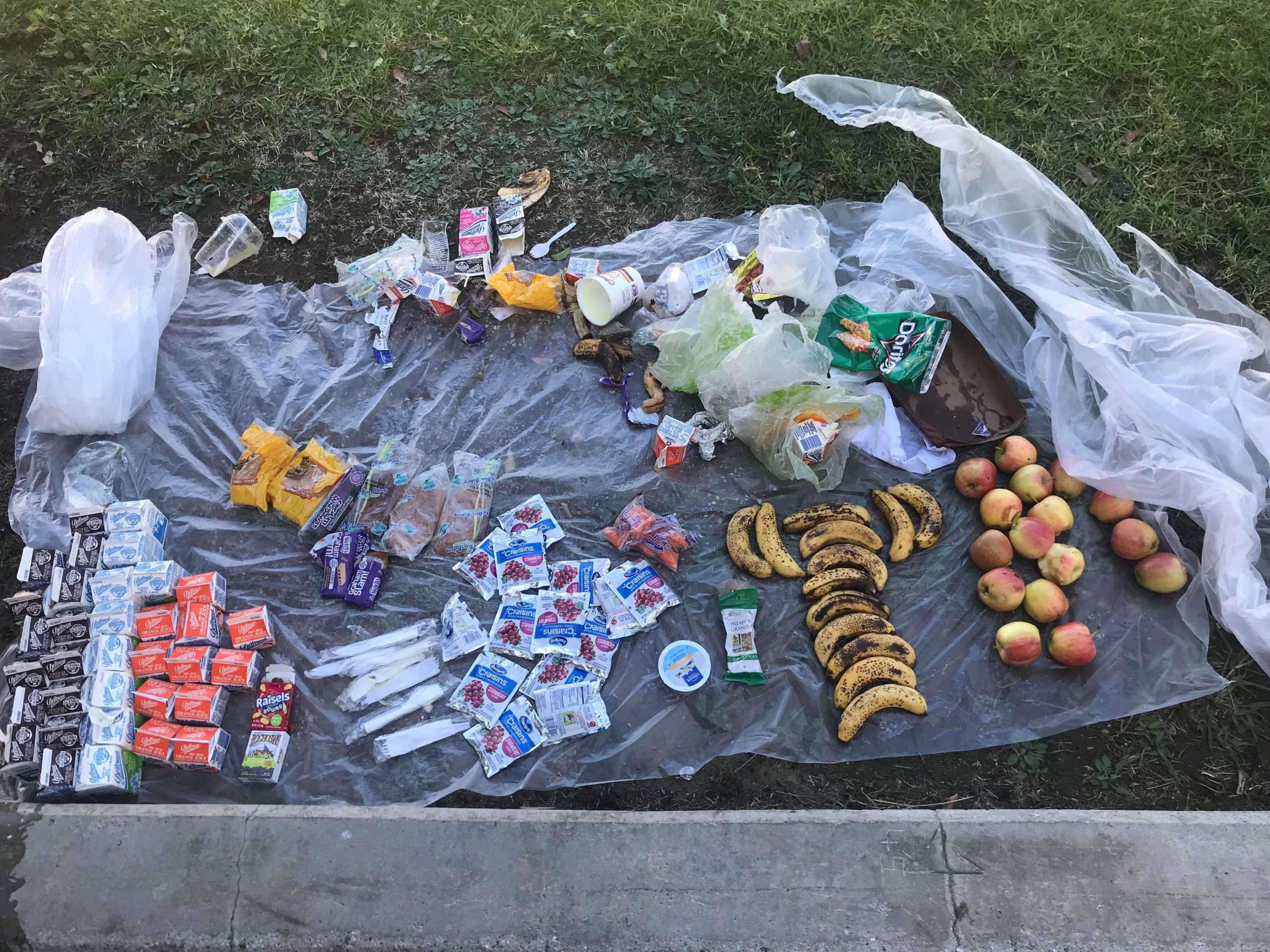
Fuji recovers uneaten food from trash cans, distributes it to students
Recovering uneaten food items from trash cans on campus for the past year, Physical Education teacher Carla Fujimoto plans to reduce the amount of wasted food and help students be more mindful about their impact on the environment.
Before 10 a.m., Fujimoto collects certain foods between classes that the cafeteria staff ensures students take with them when they eat lunch or breakfast. One of the regulations set in place by the U.S. Department of Agriculture Food and Nutrition Service, is that students must be offered at least one fruit, vegetable, whole grain, milk, and protein item every lunch and breakfast. Many of the items are thrown into the trash cans, adding to the daily food waste of the school.
“We’re talking about packaged food [like] the cranberries, the raisins, [the] cookies, and other fruits,” Fujimoto said.
Fujimoto was inspired by senior Matthew Perez to take action after seeing him working with former science teacher David Whitman and science and math teacher Leah Ulloa to create a documentary about the food waste produced by the Grab N’ Go breakfast program. The collaboration between staff and student prompted the integration of the Food Recovery Program by the district and the Tzu Chi Foundation.
“They collected [and emptied] trash cans, and I saw all the wasted, uneaten food,” Fujimoto said. “I thought it was atrocious that all that food was being dumped and wasted, a. And so I decided to do something about it. I met with a group of administrators and teachers, and we discussed [the food waste].”
Additional foods not required to be given to students also end up in the trash cans, especially during breakfast.
“Students are getting things that were originally put on the menu to be optional, not mandatory,” Perez said. “But because students grew up believing [that they are] mandatory, it causes a huge waste problem, when they never wanted it in the end. For example, milk cartons, baggies, and utensils.”
Before passing the food items onto anyone else, Fujimoto has certain rules that she follows when it comes to maintaining a sense of sanitation with her food recovery.
“I rewash all the bananas, apples, and the oranges,” Fujimoto said. “I don’t take food if it’s covered in milk or anything unsanitary like that. Only packaged food. [I] offer it to the students, and they eat it throughout the day.”
Fujimoto often leaves the food she gathers from trash cans and extra food from her own home in spaces where students are free to grab as many as they want.
“I put it out on the table in the locker room, or I carry it around and offer [it to students],” Fujimoto said.
Her desire to recover food stems from her own lifestyle of reduced waste. In fact, she tries to keep track of what items she consumes and brings into her house.
“Eighty percent of my trash at home [is] recycled,” Fujimoto said. “I recycle, reduce, [and] reuse everything all the time.”
Doing this is crucial to Fujimoto because being more mindful about the actions students have on the environment is essential to their future.
“[I] set an example [and] provide [the students with] information because it’s their future,” Fujimoto said. “Be more aware and proactive about our planet. It’s like when I go visit someone’s house. I try to leave it nicer then when I came.”